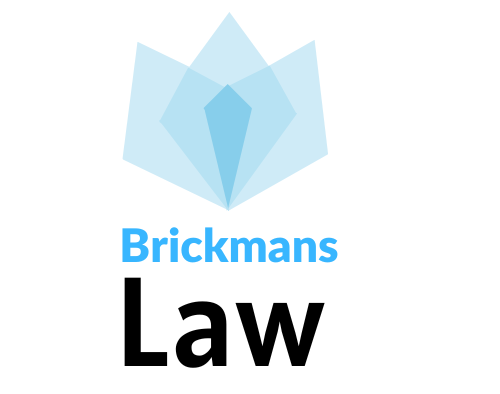2022 NBA-AGC: SPIDEL Breakout Session Explores Consequence Of Undermining The Judiciary In a Democracy
Without the rule of law, no human society can survive, let alone succeed. And key to the fortunes and workings of a law-abiding society is the judiciary, which has been variously described as the last hope of the common man, and the foundation of a sane and safe society. Indeed, the Bible asks, ‘If the foundations be destroyed, what can the righteous do?’.
The panelists that sat to discuss, and hopefully, forestall, the destruction of this foundation – namely, the dangers of undermining of the Nigerian judiciary – were unanimous in their call for more institutional safeguards against what they saw as a creeping existential threat.
Moderated by the Chairman of the NBA Section on Public Interest and Development Law (SPIDEL), Dr. Monday Onyekachi Ubani, the panel comprised of renowned human rights lawyer Mr. Femi Falana; Dr. Uju Agomoh, founder and executive director of PRAWA (a correctional advocacy group); and Mr. Joseph Otteh, executive director of Access to Justice, also an advocacy group – all of whom participated in person – unlike Chief Mike Ozekhome, the fifth panelist, who participated virtually.
In his opening remarks, Falana, who described Nigeria’s system of government as a plutocracy (a government of the rich, by the rich and for the rich) lamented the disparity between the quality of justice available to the rich and powerful, vis a vis the rest of society.
The blame for this disparity, however, does not lie solely with the executive, as commonly assumed, he said; lawyers as well as the judiciary itself are also complicit in the undermining of the authority and impact of the judiciary.
Falana also warned of the dangers (to the judiciary) of creating a dichotomy between senior lawyers (silks) and their junior counterparts – for example, by monopolising important briefs. “If lawyers are not equal,” he queried, “how can litigants be equal?”
He and the other panelists agreed that the undermining of the judiciary has repercussions even on the nation’s economy, which could suffer from a loss of local and foreign investment – given the fact that investors value regulatory and legal certainty in the environment they wish to put their money in.
In her contribution, Dr. Agomoh called attention to the current state of our correctional and custodial centres. She went on to describe at great length the provisions of the Nigerian Correctional Services Act 2019, and the extent to which virtually every single provision is being observed in the breach. She startled the assembled conferees with her declaration that of the 19 or so agencies with powers to detain persons in Nigeria, NONE of them knows exactly how many people are being detained in Nigeria. The failings of the correctional and custodial system in the country, she declared, are the failings of the judiciary as well – as well as a lack of will and a refusal by the Bar to engage on the issues. She called on SPIDEL in particular, and the NBA in general, to take up the gauntlet in this regard. She also called on government to declare a state of emergency in order to beam a powerful searchlight on the rot in this critical area of justice – the better to speed up the process of penal reform in Nigeria.
Also speaking, Otteh of Access to Justice noted that the Nigerian judiciary was weighed
down by all manner of shackles – many of which are of its own making – such as overloading dockets; inaccessibility of justice; benchmarking court fees; labour-intensive court processes; lack of innovation, etc. These negative tendencies, he says, have cumulatively led to a loss of confidence in the judiciary among the people – especially if the society is suffused with a culture of impunity for which the judiciary, having lost its authority, seemingly has no answer. Not only that, he also warned that the judiciary, as presently structured, is not prepared for the next pandemic, and urged it to wean itself of antiquated practices and adopt a more proactive stance going forward.
Without disagreeing with Falana on the ‘dichotomy’ between silks and junior lawyers as far as monopolising briefs are concerned, Ozekhome agreed his brother silk, however, that the judiciary has been victimised by lack of a metaphorical sword or purse (as do the executive and the legislature). Like the other panelists, he insisted that some of the manacles holding back the judiciary from fulfilling it’s important mandate were of its own making.
One area in which the authority of the judiciary has suffered severely in recent years, the moderator, Dr. Ubani, asserted, is in the battle of wills between counsel and Judges and Justices during court proceedings – which in many cases has led to counsel being cited for contempt and sent to prison (as in the case of Inibehe Effiong in Uyo, Akwa Ibom, to name one of many examples). He called for a balance to be struck between the need to treat the office and person of the Judge with reverence, and the need to ensure that the Judge did not abuse their enormous powers. A number of panelists offered ways to strike that balance.
Following the challenge thrown by Dr. Agomoh in particular, Dr. Ubani called for urgent action and engagement on the part of lawyers – and called on them to register as members of SPIDEL a matter of urgency in a bid to help end the undermining of the judiciary and the erosion of its authority.
The post 2022 NBA-AGC: SPIDEL Breakout Session Explores Consequence Of Undermining The Judiciary In a Democracy appeared first on Lawyard.
